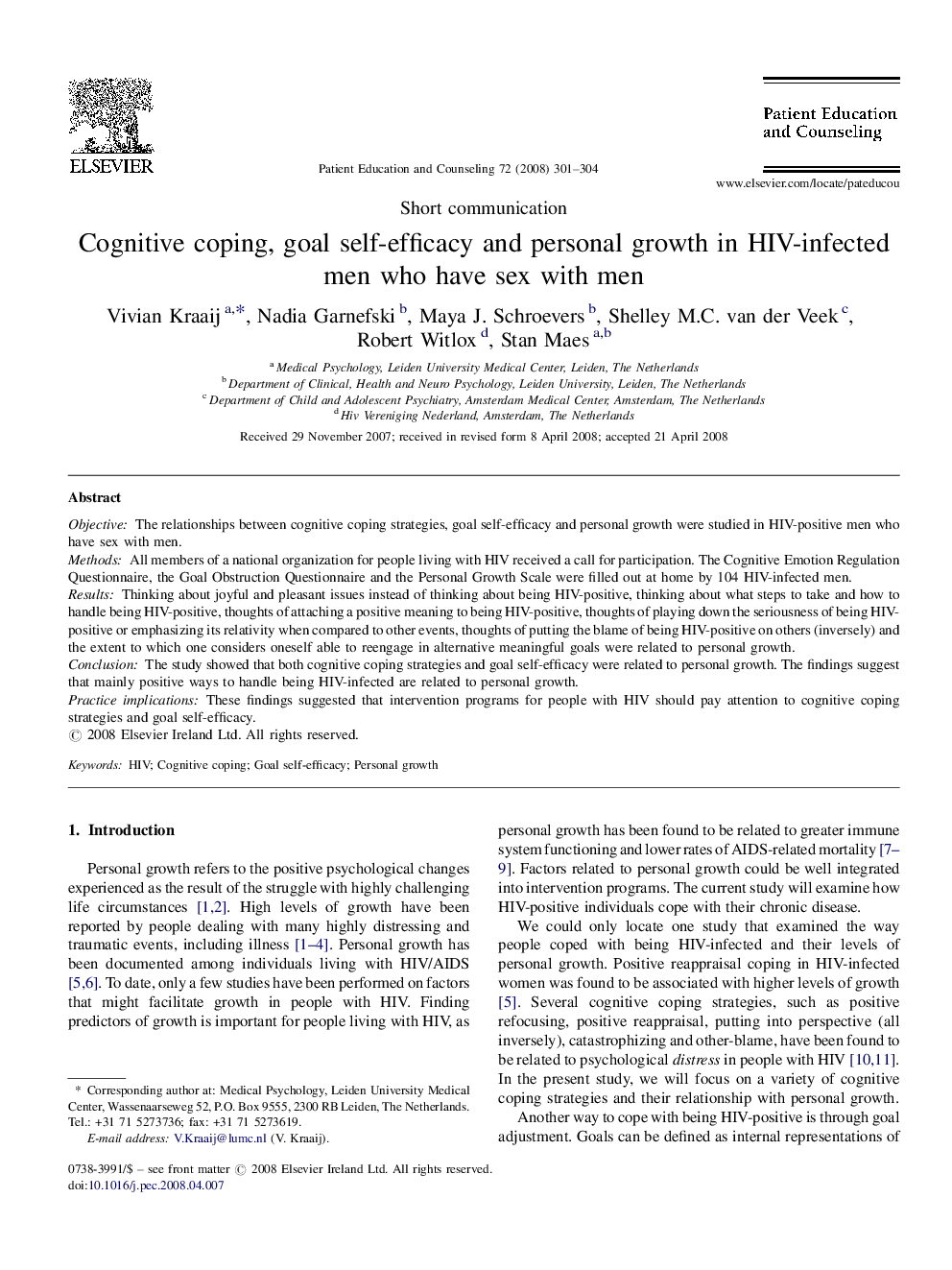| Article ID | Journal | Published Year | Pages | File Type |
|---|---|---|---|---|
| 3815357 | Patient Education and Counseling | 2008 | 4 Pages |
ObjectiveThe relationships between cognitive coping strategies, goal self-efficacy and personal growth were studied in HIV-positive men who have sex with men.MethodsAll members of a national organization for people living with HIV received a call for participation. The Cognitive Emotion Regulation Questionnaire, the Goal Obstruction Questionnaire and the Personal Growth Scale were filled out at home by 104 HIV-infected men.ResultsThinking about joyful and pleasant issues instead of thinking about being HIV-positive, thinking about what steps to take and how to handle being HIV-positive, thoughts of attaching a positive meaning to being HIV-positive, thoughts of playing down the seriousness of being HIV-positive or emphasizing its relativity when compared to other events, thoughts of putting the blame of being HIV-positive on others (inversely) and the extent to which one considers oneself able to reengage in alternative meaningful goals were related to personal growth.ConclusionThe study showed that both cognitive coping strategies and goal self-efficacy were related to personal growth. The findings suggest that mainly positive ways to handle being HIV-infected are related to personal growth.Practice implicationsThese findings suggested that intervention programs for people with HIV should pay attention to cognitive coping strategies and goal self-efficacy.
